
In recent times, players in the music industry have been arguing that dancehall music is on its death bed. Some critics have blamed producers, claiming that too many hip-hop rhythms were being made.
Producers seem to have changed course in the last year or so, building new rhythms with authentic dancehall elements, in some cases sampling melodies and instruments from classic hits of the 1990s.
Some notable contemporary dancehall rhythms like Major Lazer’splatinum-selling ‘Bumaye’, TJ Records’ ‘Toasted’, Head Concussion’s ‘Reverse It’, Big Ship Records’ ‘Pepper’, Sub Konshus’ ‘School Fee’, and Cashflow Records’ ‘School Bag’ rhythm are just some of those to have taken a page from original dancehall sounds.
However, despite the commendable efforts of producers from the new school, the genre is still in tatters with critics singing a new tune.
Now the blame for the state of dancehall is now resting squarely at the feet of the artists.
Dancehall conversations now seem to suggest that artists are not writing strong enough content about serious enough issues, but are instead flooding the market with volatile music, predominantly geared at dancing and sex.
Dancehall once explored a wider array of topics such as poverty, oppression, and hope, and looked at issues of morality, though sex and violence were still present in the lyrics.
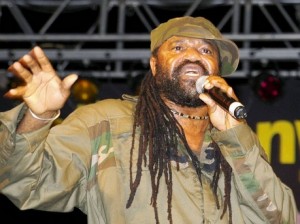
The Sunday Gleaner spoke with dancehall producer DJ Neil, who suggested artists dig deeper for new topics.
According to the producer, during a typical dancehall recording secession, he can guess what an artist is going to sing about before hearing the song.
“We need more topics in the dancehall … some things that are out of the box. Whenever a new rhythm drops, it’s either a bad-mind song, a girl song, or a badman song. Sometimes, we might give an artist an idea for the vision that we have for the rhythm, but in most cases, the artists are the ones who come up with their own concepts,” he said.
Keron Rowe, entertainment manager at Just for Peace International, believes dancehall artists are deliberately writing about limited topics because they want to fit in with the crowd. He believes the quest to get a quick hit is the main reason for the lack of lyrical progress in contemporary dancehall.
Rowe referred to veteran dancehall artists, such as Tony Rebel, as lyrical teachers, who helped to promote moral standards through dancehall music.
“We are told that we have to please this new generation of youngsters who are not interested in social commentary but everything
which is raw, loose, foul, and obscene. So to become popular, artists may not even want to, but this is where the bread and butter is, so what else can we do? Majority rules. Sex sells, and this is no joking matter,” he said.
The entertainment manager also blamed society for creating a sexually overdosed environment via the media in order to stimulate commercialism.This, he believes, has impacted negatively on artforms which mimic the society.
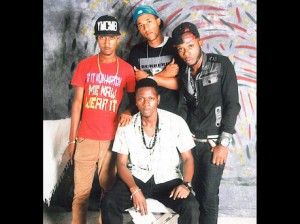
“We use sexy girls on almost every product we need to sell. This will attract the rich and famous, so if we want to stay in business, we have to feed those who have the cash. Too many persons who should know better turn a blind eye to the promiscuity in society. Therefore, we have fewer and fewer persons who are promoting godliness. I believe the media has a significant part to play in correcting what has gone wrong for so long,” he said.
Reviving dancehall, Rowe explained, will take a collaborative effort from parents, teachers, politicians and just about everyone who shares in the formation of society.
“We may well have to put in place massive public education and get the right people to do the job, as too many wolves are wearing sheep’s clothing. We cannot continue to promote and protect wrongdoers, especially when these people wield so much influence in society,” he said.
Veteran dancehall artist Mr Vegas also shared a similar view. Vegas believes artists will be more respected if they do music with strong content, preferably social commentary.
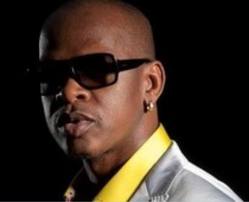
However, he also admitted that it would be an uphill task to get the entertainment industry singing the same tune.
As a result of this, Mr Vegas encourages artists to use social media to promote their material, citing that the world is just as receptive to material coming in from social networks.
Fellow veteran dancehall artist, Imperial, formerly called Alley Cat, who recently produced an album called Dancehall Knowledge Volume 3, told The Sunday Gleaner in a recent interview that he was very concerned about the content of dancehall because everybody uses similar lyrics.
Imperial said his album targeted various social issues because he wanted to show the new generation of artists that dancehall is a powerful tool.
Some dancehall artists who dared to be different in recent times by releasing music tackling serious issues are Agent Sasco, formerly called Assassin, who has a new single called Day In Day Out which discusses survival against the odds and the power of optimism; Twin of Twins with an effort called Tessanne, which draws attention to Jamaica’s social and political issues; and Bugle’s Wrong Priority, which denounces violence, Jamaica’s bad-man culture and non-ambitious youths.
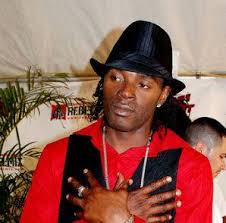
Bugle, for instance, maligns popular culture when he sings:
How come man a buy weed and can’t buy food?
Man a buy shot and can’t buy shoes?
Get up everyday nah try fi mek hay
And a blame politician with a bag of excuse
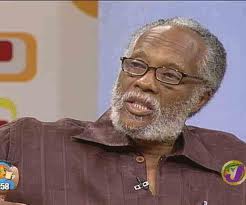
Curator of The Jamaica Music Museum, Herbie Miller, also wants contemporary artists to focus on topics outside of the ordinary, to include information about global warming and natural disasters.
“We can’t just be doing music for music’s sake anymore. Had it not been for music, this country would be up in flames like many other countries in the world,” Miller told The Sunday Gleaner recently.


You must log in to post a comment.